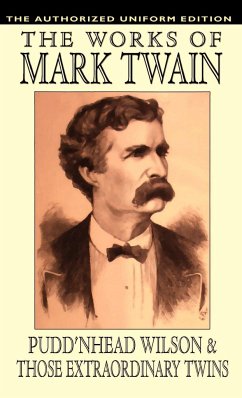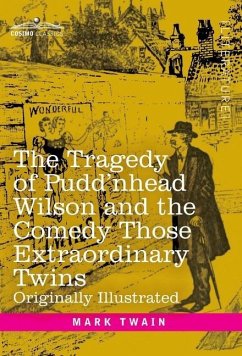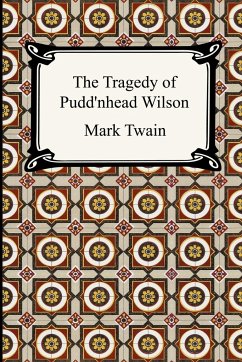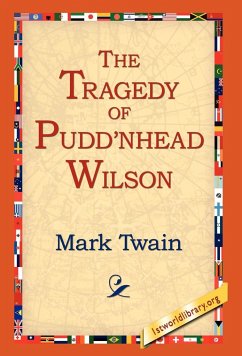
The Tragedy of Pudd'nhead Wilson and the Comedy Those Extraordinary Twins
Versandkostenfrei!
Versandfertig in 1-2 Wochen
28,99 €
inkl. MwSt.

PAYBACK Punkte
14 °P sammeln!
"There is no character, howsoever good and fine, but it can be destroyed by ridicule, howsoever poor and witless." -Mark Twain, The Tragedy of Pudd'nhead Wilson (1894) The Tragedy of Pudd'nhead Wilson: And the Comedy Those Extraordinary Twins (1894), one of Mark Twain's most entertaining, funny, but also bitter works, takes place during the antebellum in the fictional town of Dawson's Landing on the Mississippi River. It tells the tale of switching identities-one a baby boy born into slavery and the other a baby boy born to be the master of the house. Twain offers his quintessential ironic vis...
"There is no character, howsoever good and fine, but it can be destroyed by ridicule, howsoever poor and witless." -Mark Twain, The Tragedy of Pudd'nhead Wilson (1894) The Tragedy of Pudd'nhead Wilson: And the Comedy Those Extraordinary Twins (1894), one of Mark Twain's most entertaining, funny, but also bitter works, takes place during the antebellum in the fictional town of Dawson's Landing on the Mississippi River. It tells the tale of switching identities-one a baby boy born into slavery and the other a baby boy born to be the master of the house. Twain offers his quintessential ironic vision of slavery and race in America, topics that one hundred twenty years after its publication are still haunting the US. Included is the short story of The Comedy Those Extraordinary Twins, which introduces the twins Luigi and Angelo Capello, who also show up in The Tragedy of Pudd'nhead Wilson. This replica of the original edition contains unique marginal illustrations-cartoon-sized illustrations in the margins of the text-by the illustrators F. M. Senior and C. H. Warren.















